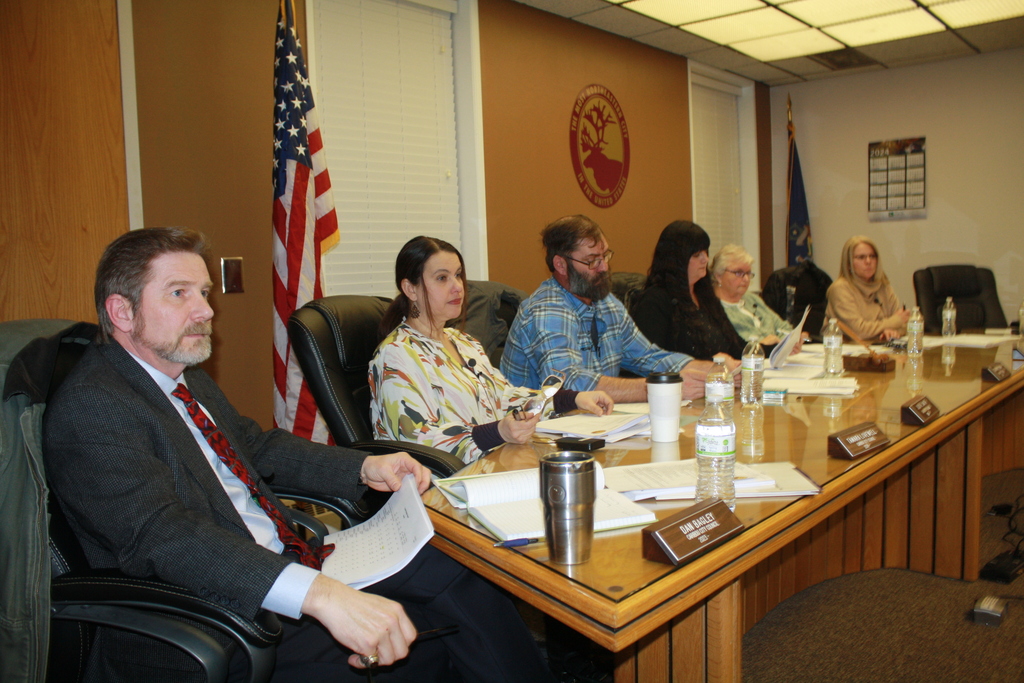
CARIBOU, Maine — The mayor’s choice to eliminate the prayers that open city meetings prompted Caribou councilors to reinstate the tradition and not create a policy governing prayers.
Since January 2020, Caribou councilors have opened all meetings with an invocation or inspirational thought that either the mayor or a guest recites. Guests typically include clergy from local churches, and the prayer has been a regular agenda item after the pledge of allegiance.
It was started by then-Mayor Mark Goughan, who announced that Caribou would use the same municipal-based prayer that Fort Fairfield town councilors traditionally used. At the time, the council did not vote on the matter, and the city manager asked each incoming mayor if they wanted to continue with the prayers.
Former Mayor Jody Smith kept the tradition after becoming mayor in 2021. But this year, newly appointed Mayor Courtney Boma opted to eliminate the prayer for fear of opening up the city to potential legal liability. She did not fully explain her reasoning during the council’s Jan. 8 meeting, prompting questions from Councilor John Morrill.
On Monday, several other councilors said that the council, not the mayor, should debate and vote on the matter themselves. The council opted to not create a new policy and instead voted 4 to 2 to keep the opening prayer at meetings.
“I think the tradition established four years ago was a terrible misstep,” said Councilor Dan Bagley. “[The prayer] was established by decree, then taken off by decree. It should be taken up by the council.”
Both Boma and City Manager Penny Thompson said that councilors’ concerns prompted more research as to whether the council should create a policy governing the rules of public prayer to avoid potential lawsuits.
“This wasn’t meant to offend or upset anyone,” Boma said. “[The prayer] was taken off the agenda the same way it was put on.”
When clergy were not present, the city mayor has typically read from a prayer written with elected officials in mind. It calls for citizens’ safety and soundness of judgment in public officials, concluding by saying, “This we pray to the holy father. Amen.”
Smith led the prayer on Jan. 2 before councilors elected Boma mayor in a secret ballot. After seeking legal advice from the Maine Municipal Association, Thompson recommended that councilors create a policy that would govern how the city council must conduct public prayers before meetings.
While the First Amendment to the U.S. Constitution protects freedom of speech and religion along with the concept of separation of church and state, legal precedent has generally allowed municipalities to decide policies on public prayer, Thompson noted.
In 2014, the U.S. Supreme Court decided in the case of Town of Greece v. Galloway that it is constitutional for officials to hold an opening prayer that is religious in content, even if the prayer references a religious deity, so long as they do not require audience members to participate, allow individual to leave the room and return after the prayer is over and do not use the prayer to promote or criticize one faith over another.
The high court decided that elected officials in Greece, New York, a town of 94,000, could continue with prayers because they were ceremonial in nature and done before board members conducted town business.
Caribou City Councilor Tamara Lovewell said she was in favor of drafting a new city policy.
“I think a policy would show that we’re respecting everyone and not trying to preach one faith over another,” Lovewell said. “Personally, I’d like to see the prayer back in place.”
Deputy Mayor Joan Theriault also took issue with the lack of a council vote in 2020 and argued that the prayer seemed out of place in a political meeting.
“I believe in prayer, but I don’t think it belongs here in a public setting where we might have people of different religions,” said Theriault, who voted against the measure alongside Boma. “We went for years without it and I think there needs to be a separation of church and state.”







